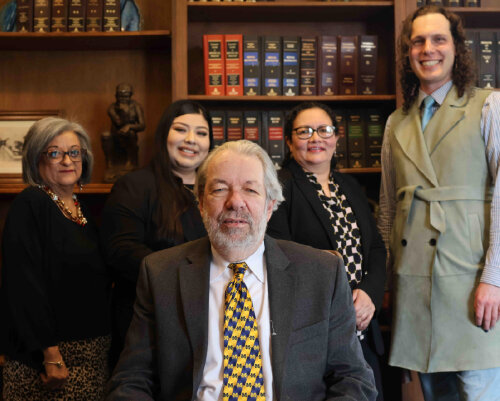Best Collaborative Law Lawyers in Grand Rapids
Share your needs with us, get contacted by law firms.
Free. Takes 2 min.
Free Guide to Hiring a Family Lawyer
List of the best lawyers in Grand Rapids, United States
About Collaborative Law in Grand Rapids, United States
Collaborative law, also known as collaborative practice, is a legal process aiding parties to resolve disputes amicably and without resorting to litigation. In Grand Rapids, this process is most commonly employed in the fields of family law, such as divorce and child custody cases, but it can also be used in civil disputes. The parties engage their lawyers with the mutual goal of reaching fair and equitable resolutions. These lawyers are trained in the collaborative law process.
Why You May Need a Lawyer
Whether you're navigating a divorce, working through a domestic dispute, or trying to resolve a civil issue, you may find legal advice beneficial. A lawyer versed in collaborative law can help guide you through the process, ensuring your rights are protected while striving for a peaceful agreement. For instance, in divorce cases, a collaborative law professional can assist with fair division of property, child custody arrangements, or resolving financial disputes.
Local Laws Overview
Collaborative law in Grand Rapids operates under the guidelines of the Michigan Collaborative Practice Act. This law governs how parties and their attorneys conduct the process, ensuring it is fair, confidential, and transparent. Having a lawyer who understands these statutes can be vital in successfully navigating your case and reaching a resolution that respects your interests.
Frequently Asked Questions
Do I have to go to court in a collaborative law process?
No, one of the significant benefits of collaborative law is that it usually avoids court proceedings. The focus is on mutual agreement and resolution, not litigation.
Can I change lawyers during the process?
Changing lawyers during the process y is generally discouraged, as the collaborative law process requires mutual trust and respect. However, if a resolution cannot be reached, you may need to engage a different lawyer for litigation.
Is collaborative law binding?
The agreements reached in the collaborative process can be made legally binding by transitioning them into formal legal contracts or court orders.
Is collaborative law confidential?
Yes, everything discussed during the process is confidential, just like a traditional attorney-client relationship.
Is collaborative law more affordable than litigation?
Generally, the collaborative law process is less expensive than court proceedings. However, the cost depends on various factors, including the complexity of the case and cooperation level between the parties.
Additional Resources
For additional resources, you can check out the Collaborative Practice Institute of Michigan’s website. It offers insights into the collaborative process and lists certified professionals in Grand Rapids. The American Bar Association also provides resources on its website about collaborative law.
Next Steps
If you're considering the collaborative law process, the first step is to reach out to a professional trained in this field. You can make use of databases provided by organizations such as the Collaborative Practice Institute of Michigan. Next, arrange a consultation to discuss your specific case and needs. From there, your collaborative law professional will guide you through each step of the process to seek a fair and peaceful resolution.
Lawzana helps you find the best lawyers and law firms in Grand Rapids through a curated and pre-screened list of qualified legal professionals. Our platform offers rankings and detailed profiles of attorneys and law firms, allowing you to compare based on practice areas, including Collaborative Law, experience, and client feedback.
Each profile includes a description of the firm's areas of practice, client reviews, team members and partners, year of establishment, spoken languages, office locations, contact information, social media presence, and any published articles or resources. Most firms on our platform speak English and are experienced in both local and international legal matters.
Get a quote from top-rated law firms in Grand Rapids, United States — quickly, securely, and without unnecessary hassle.
Disclaimer:
The information provided on this page is for general informational purposes only and does not constitute legal advice. While we strive to ensure the accuracy and relevance of the content, legal information may change over time, and interpretations of the law can vary. You should always consult with a qualified legal professional for advice specific to your situation.
We disclaim all liability for actions taken or not taken based on the content of this page. If you believe any information is incorrect or outdated, please contact us, and we will review and update it where appropriate.









